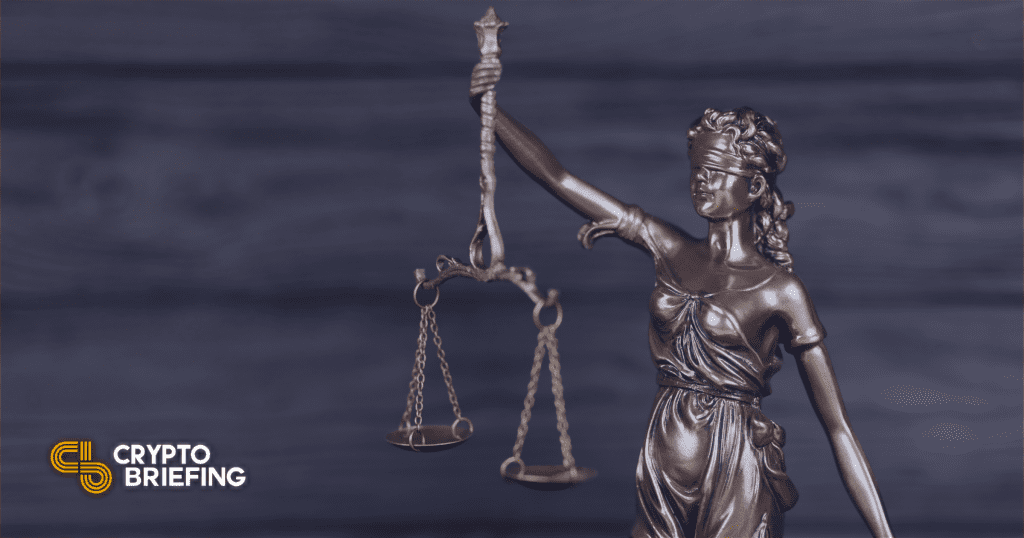
Shutterstock cover by Mehaniq
Ripple’s Defense “Legally Insufficient,” Says SEC
Ripple's defense finds no support, the U.S. agency said.
In a new development, the U.S. Securities and Exchange Commission (SEC) attacked Ripple’s latest legal claims in the ongoing lawsuit.
Ripple “Fair Notice” Defense Falls Apart
Last year, the federal agency filed a lawsuit against Ripple for allegedly selling $1.3 billion in XRP, which the SEC has claimed is an unregistered security.
Ripple’s legal team claimed the company’s executives Chris Larsen and Brad Garlinghouse, were unaware that they were violating U.S. securities law when selling XRP. In fact, they claim the SEC should have sent a prior notice before taking action.
The “fair notice” defense, put forward by Ripple’s lawyers, argues that the SEC failed to warn Ripple about violating the law before filing the lawsuit.
The SEC has since responded in a legal document, stating that the court should dismiss Ripple’s fair notice defense as it is “legally insufficient.”
“This defense—focused on what the SEC did not do before it filed this enforcement action—is legally insufficient and should be stricken,” reported the SEC.
The agency added that its job was to investigate any potential violations, not issue guidance before exercising its authority.
“The implications of Ripple’s defense—that to prosecute violations of the securities laws the SEC must provide specific notice of the illegality of certain conduct in advance of filing its action—turns the statutory regime on its head,” the SEC wrote.
Further, the agency said that two U.S. courts have already rejected the fair notice argument in the context of illegal sales of digital assets to raise funds in previous cases.
According to the document, Ripple’s founders also received advice from a reputable law firm about the risks associated with the sale of XRP and how it could break federal securities laws. The SEC alleged that Ripple’s executives knew the risks of selling XRP. The agency wrote, “Ripple understood but decided to assume the risk that this action could be filed.”
The SEC further argued that in 2017, the agency had already cautioned in a report that raising capital through the sale of digital assets is subject to strict evaluation under federal securities law. They reasoned that before its action against Ripple, it had already charged multiple individuals and firms, such as Telegram and Kin. Prior notice was not given in these events.
SEC’s Work Hampered
In a separate document, the SEC also criticized Ripple’s attempt to stop the agency’s communication with foreign regulators concerning XRP sales. Previously, the SEC issued 11 requests to 9 foreign regulators to gain information about firms that used XRP, including exchanges and Ripple’s ODL customers.
The SEC said it was seeking data on Ripple’s XRP sales to cryptocurrency exchanges in countries such as Japan that may aid its investigation through voluntary requests. Using requests, the agency tried to understand whether Ripple’s announcements influenced XRP’s price fluctuations.
In response, Ripple filed a motion with the U.S. Court, claiming such investigation was not permissible under Federal Rules of Civil Procedure.
The SEC says there is no such provision under the law that prohibits it from making requests for the “discovery process” and that such requests are common.
In the letter to Judge Sarah Sarah Netburn, the SEC counsel implied that the defendants (Ripple’s executives) might intentionally try to prevent access to data on XRP in countries outside the U.S.
“Yet, despite advancing these arguments and assuring the Court that they will produce all records respecting their trading in XRP, the Individual Defendants (Larsen and Garlinghouse) have not turned over a single document concerning a non-U.S. domiciled digital asset account or otherwise explained the significance of these XRP transfers,” wrote the SEC.
The SEC said it was only doing its job as conferred by the U.S. Congress, and Ripple should not impede the process. Seeking information from third parties through requests is critical to its investigation, the agency said.
This is not the first time Ripple had filed a motion to dismiss that hampered the SEC’s investigation. The payments company was previously able to block the SEC from looking into its executives’ bank records.

 Earn with Nexo
Earn with Nexo